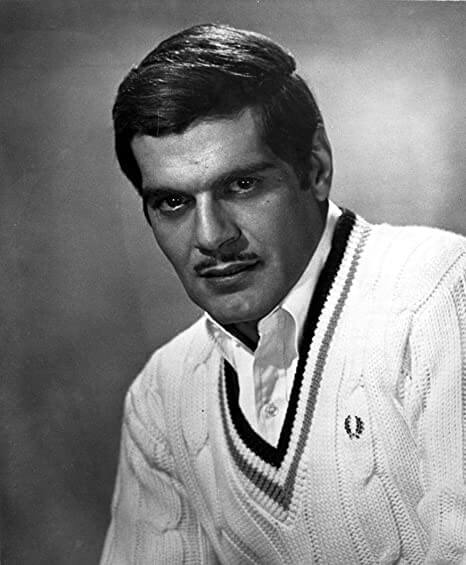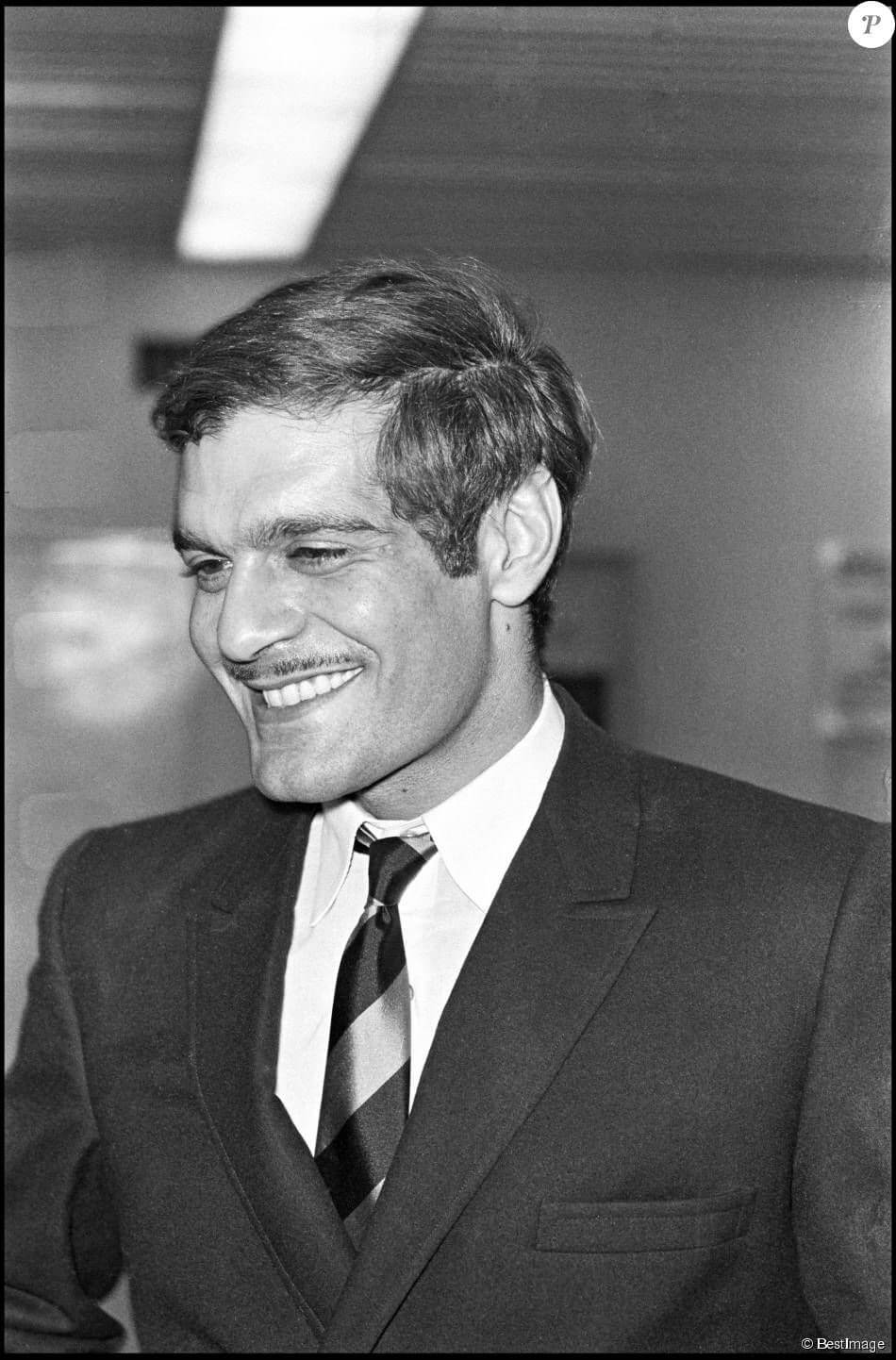Reading Time: 5 minutes
Mira talks about the life and times of Omar Sharif in a tribute to the great actor. A heartthrob of millions, he was a linguist, excellent Bridge player, author and a person after whom cigarettes and perfumes were named.

Praised to the skies for the spellbinding entry in Lawrence of Arabia, Omar Sharif – heartthrob of millions of fans all over the world, departed for ever into another realm. He passed away on the 10th day of July, 2015, in Cairo after suffering a heart attack. He was born to Joseph Chalhoub – a wood merchant and Claire Saada – a society hostess on April 10, 1932, in Alexandria. He was named Michel Dimitri Chalhoub by his parents, who were Melkite Catholics of Lebanese descent.
Tracing the origin of Chalhoub family, it is believed that they had moved to Cairo from Alexandria when Sharif was only four years old. On his mother’s insistence, Sharif was sent to a boarding school to get used to a more disciplined life. After schooling, he studied at the Victoria College in Cairo where his flair for learning languages was identified. This helped him to pursue learning different languages thereby mastering a number of foreign languages. Thereafter, he went to Cairo University and obtained a degree in Physics and Mathematics. On completion of education, Sharif worked with his father for a while in his wood business. By this time, Sharif spoke Arabic, English, Greek, French, Spanish and Italian fluently. He had also become aware of his good looks besides his multi-lingual ability. Motivated by his mother to pursue a career in acting, he set out to try his luck. Before starting his acting career, Sharif enrolled himself at the Royal Academy of Dramatic Arts in London to hone his skills and concluded the curriculum as desired.
When he returned to Egypt in 1950, Sharif did not have to struggle to find work as at that time, there were about 150 movies being produced annually in Egypt. Sharif started acting under the name Omar El-Sharif. The word Omar means eloquent speaker, El means strength, might or power and Sharif in English means ‘nobleman’. Some of the Egyptian movies Sharif acted in are Shaytan-Al-Sahara (Devil of the Desert), Sira Fi-Al- Wadi (Struggle in the Valley), La Anam (Sleepless), Sayyidat al-Qasr (Lady of the Palace), Nahr el-hub (The River of Love). In Sira Fi-Al-Wadi Sharif shared his screen presence with the most popular actress Faten Hamama. Their on-screen rapport gradually turned into a romantic relationship and eventually, they got married in the year 1955. In order to get married to Faten Hamama, Sharif had to embrace Islam, which he did without any objection as nothing mattered more to him other than his Lady Love. They are believed to have appeared together in a dozen flicks. In 1957, Sharif and Faten Hamama were blessed with a son who was named Tarek Sharif. The newly acquired status of parenthood was bliss until Sharif started getting offers from Hollywood. Caught up in his Hollywood bid, he began spending more time at work thereby neglecting the family, which in due course turned into dilemma. Trouble started brewing in their married life and the much talked love story turned repugnant which led to separation in 1966 and finally led to divorce in the year 1974.
Sharif was already an established star by 1962 in the Middle East when he was offered the role of Sharif Ali Ibn El Karish by the Hollywood Director David Lean in his historical epic Lawrence of Arabia. Sharif played an Arab Tribal Chief in this movie. The other star casts of the movie were Peter O’Toole and Anthony Quinn. Sharif’s performance in Lawrence of Arabia earned him the Oscar nomination for Best Supporting Actor and Golden Globe Award for Best Supporting Actor – Motion Picture. He also shared the Golden Globe Award with Peter O’Toole for New Star of the Year-Actor. In 2003, Sharif received the Venice Film Festival’s Audience Award and the Career Golden Lion Prize for his achievement in films. In 2004, he won Ceasar Award (France) for the movie Monsieur Ibrahim as well as a Lifetime Achievement Award from Dubai International Film Festival.
Most foreign actors by and large were typecast but Sharif managed to get diverse roles in every movie. In The Fall of the Roman Empire Sharif was cast as an Armenian King. Behold a Pale Horse portrayed him as a Spanish Priest. He acted as a Yugoslav partisan in The Yellow Rolls-Royce and in Genghis Khan he excelled his role as a Mongol conqueror. Sharif proved his mettle time and again as a versatile actor in every movie he appeared. In The Night of the Generals Sharif got an opportunity to act once again with Peter O’Tool. Other flicks he appeared in were Dr.Zhivago, The Tamarind Seed, Top Secret, Funny Lady, Mackenna’s Gold, The Ten Commandments, The Fall of Roman Empire and many more. Sharif’s performance in Dr. Zhivago is believed to be the high point of his career wherein he was seen doing the title role.

Although Sharif considered his wife Faten Hamama as ‘The Love of His Life’, he was linked with quite a few leading ladies like Diane McBain, Ingrid Bergman, Barbara Streisand and Julie Christie. However, it is believed that after his divorce Sharif abstained from any serious commitment in his love life. He enjoyed popularity to a great extent but somewhere towards the end of sixties, his status lost the commercial value and his career started to experience downhill trend. During an interview, he stated to New York Times that his popularity was declining because the number of young directors in Hollywood was on a rise. The new directors were making films about their existing society and there was no room for foreigners. In 2003, he told The Times, “I want to keep some dignity in my old age. My philosophy of life is that I am living every moment intensely as if it was the last moment. I don’t think of what I did before or what I am going to do tomorrow. I think of what I am doing right now”.
During the slack period of his career, Sharif had started spending more time with his second love – gambling, horse racing and playing bridge. He earned good amount of International popularity in Bridge and was regarded as one of the best Bridge Player in the world. He was Captain of the Egyptian Bridge Team and had written syndicated Bridge columns. He also wrote a number of books on Bridge; one of which was titled Omar Sharif’s Life in Bridge. Besides writing about Bridge, Sharif wrote his autobiography titled The Eternal Male which encapsulated his star image.
In the Nineties, Sharif had a range of perfumes named after him. His perfumes were for women as well as men. Sharif also had cigarettes named after him. It is believed that he smoked about one hundred cigarettes a day. This probably was one of the causes that led to a mild heart attack in 1992 when he had to undergo a triple heart bypass surgery. After the operation, which was a bit too late in life, he quit smoking.
All said and done, Sharif lived a good life until the end except that he struggled with Alzheimer for three years and had trouble with his memory. His funeral was held at the Hussein Tantawi Mosque in Cairo and amongst the thousands who were present to say their final farewell were Sharif’s fellow actors Hussein Fahmy, Gamil Rateb, Khaled Nabawy and a close friend Zahi Hawas – former Egyptian Antiquities Minister. Barbara Streisand posted on Facebook, “I feel lucky to have had the opportunity to work with Omar and I am profoundly sad to hear of his passing”. Zahi Hawas said, “He had lost a close friend but the world had lost a great actor. As a movie star, he will not be repeated again. He was unique”.
Pictures from Pinterest














